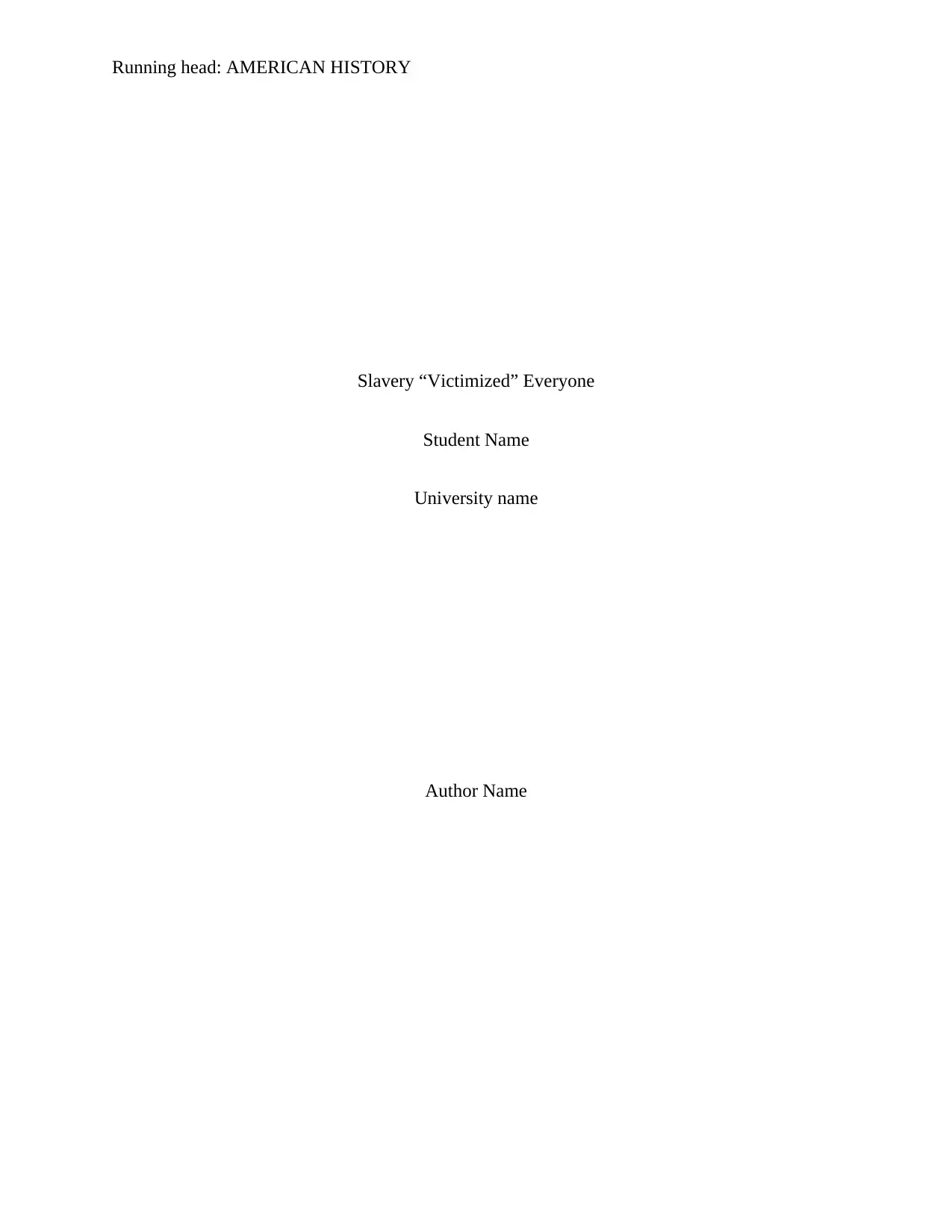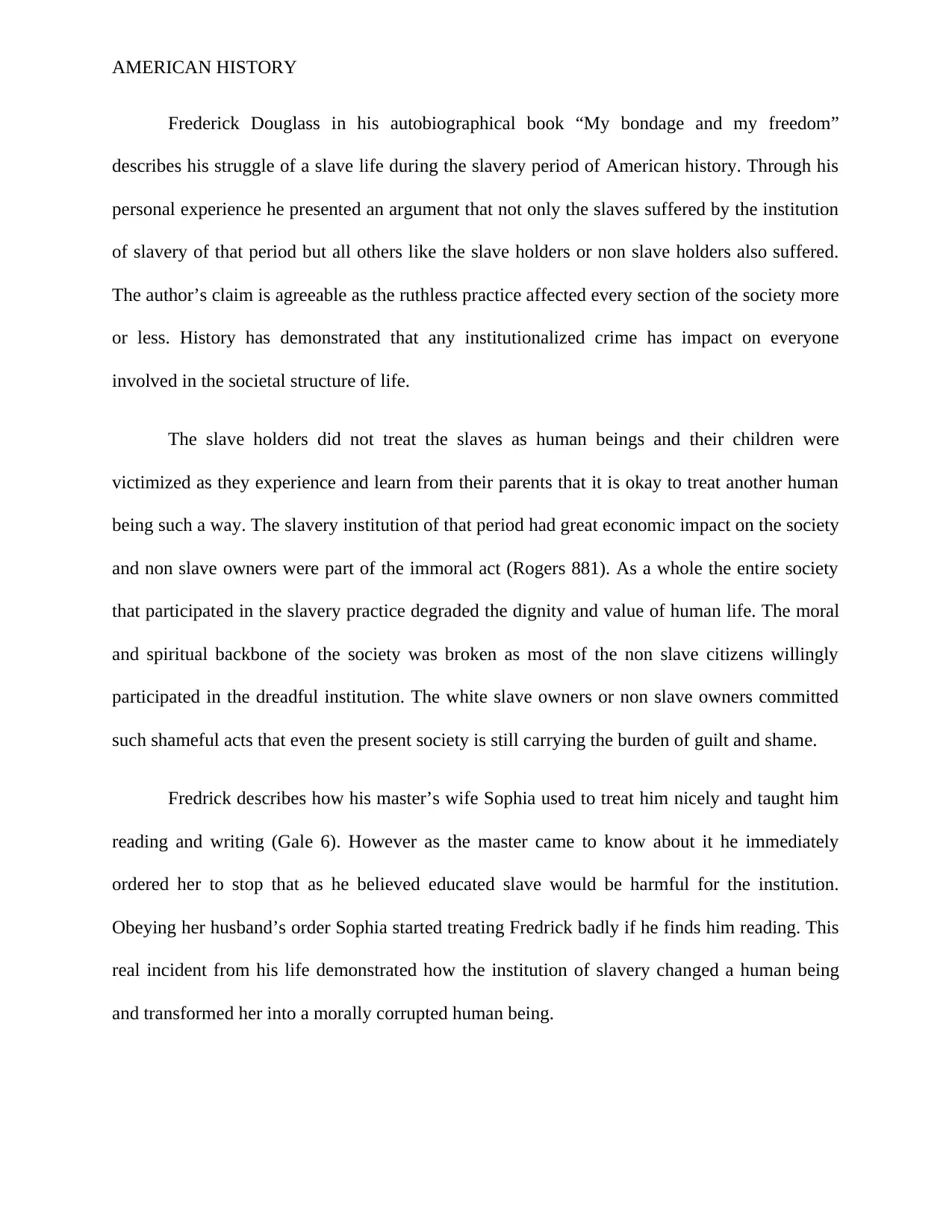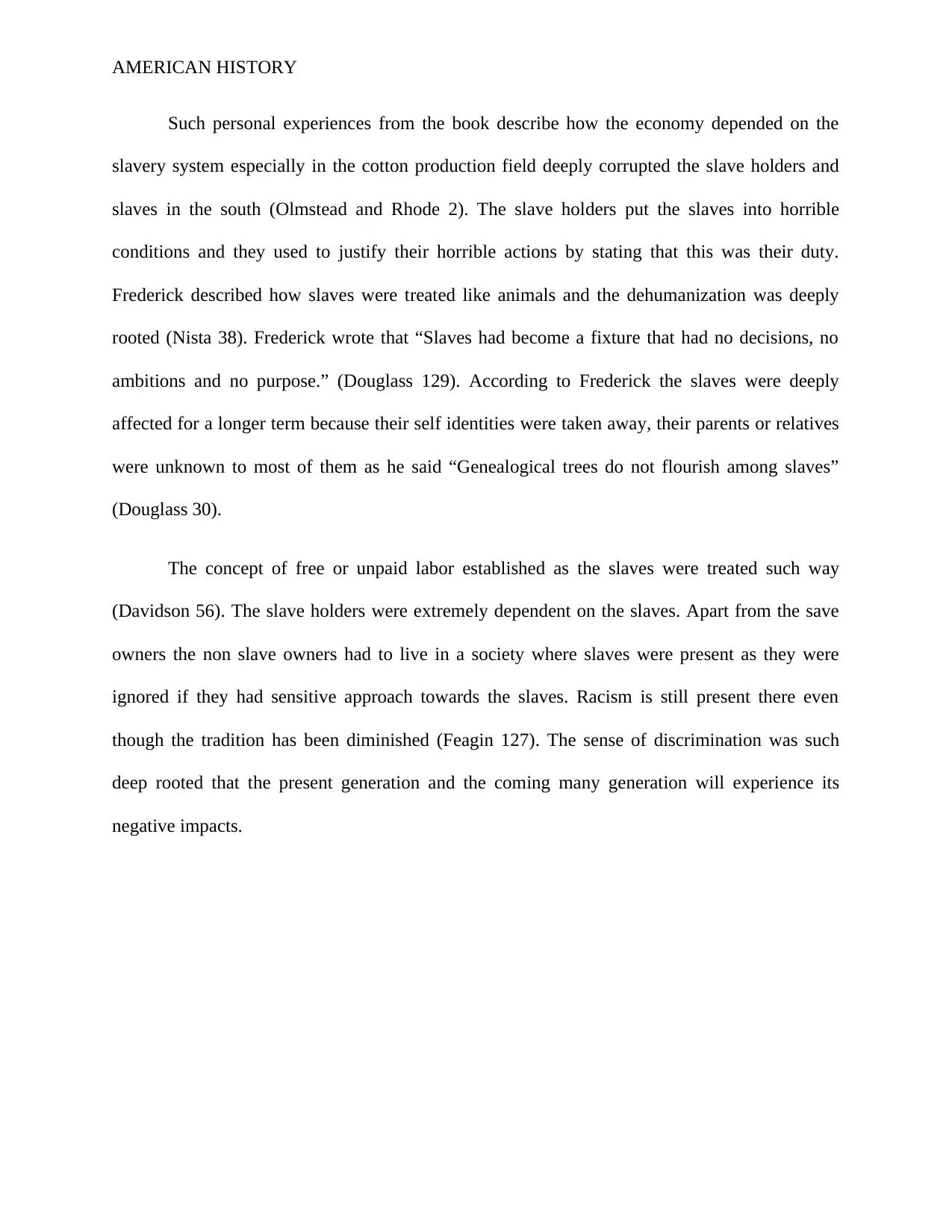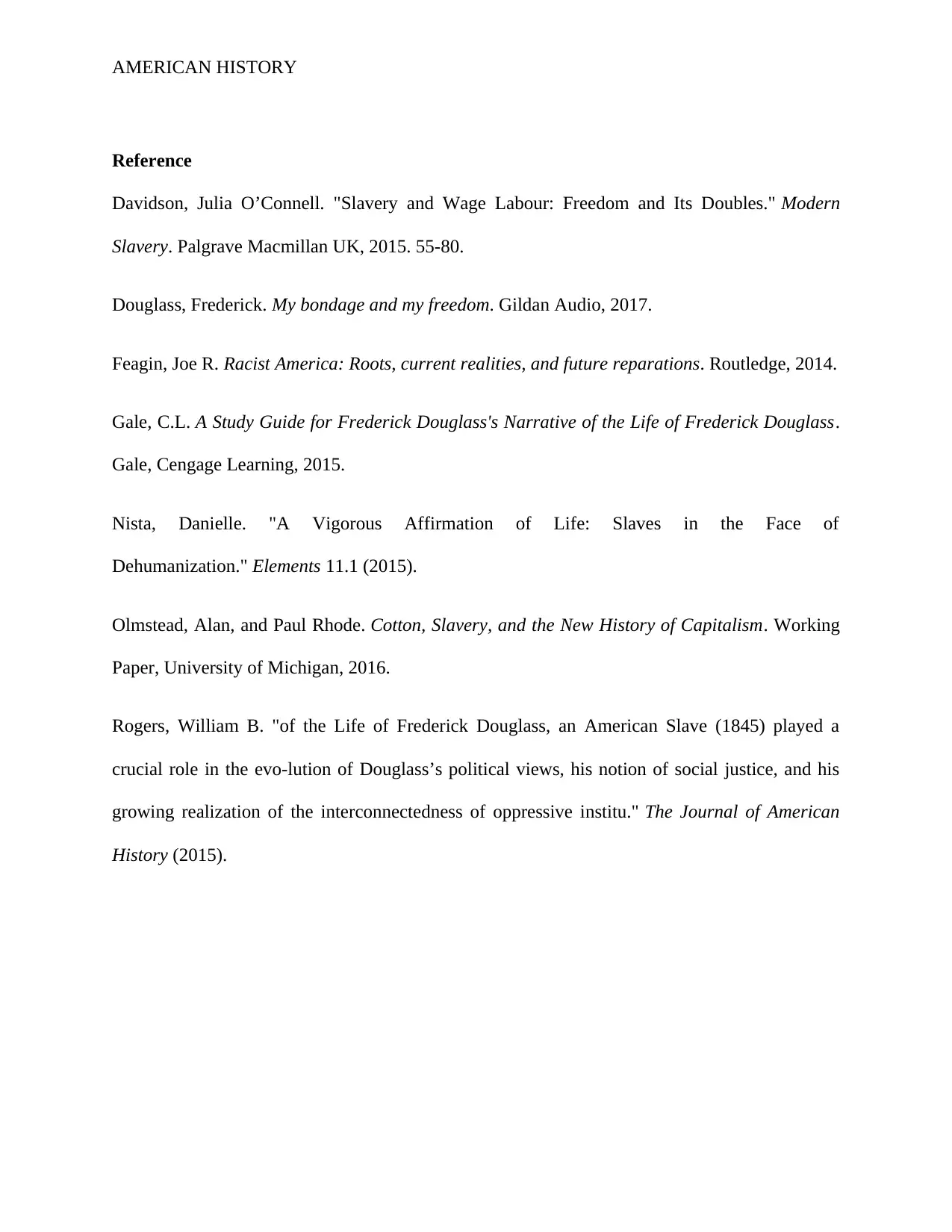American History (HIST 101): Slavery's Impact on American Society
VerifiedAdded on 2020/04/07
|4
|816
|255
Essay
AI Summary
This essay examines the pervasive and destructive impact of slavery on American society, drawing heavily from Frederick Douglass's autobiographical work, "My Bondage and My Freedom." The essay argues that slavery victimized not only the enslaved but also slaveholders and the broader society, highlighting the moral and economic consequences. It analyzes how the institution of slavery corrupted individuals, as demonstrated by the transformation of Sophia, Douglass's master's wife, and its deep roots in the economic system, particularly cotton production. The essay further explores the dehumanization of slaves, the destruction of their identities, and the lasting legacy of racism. It references several scholarly sources to support its claims, offering a comprehensive overview of slavery's detrimental effects on all involved and its enduring impact on American society, even in the present day.
1 out of 4











![[object Object]](/_next/static/media/star-bottom.7253800d.svg)